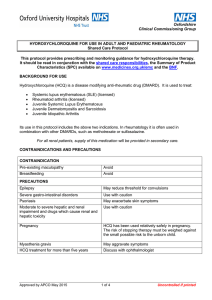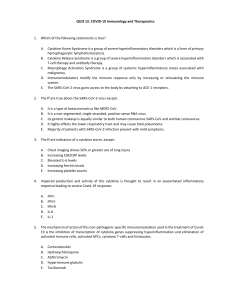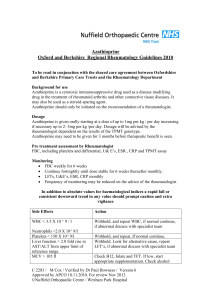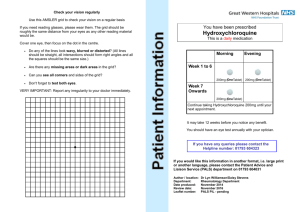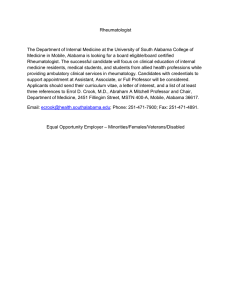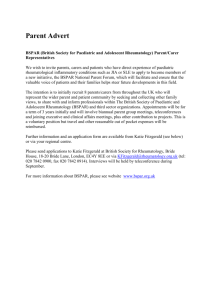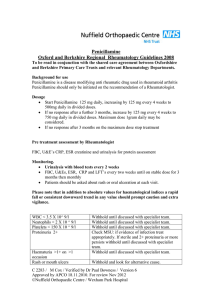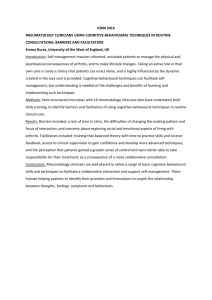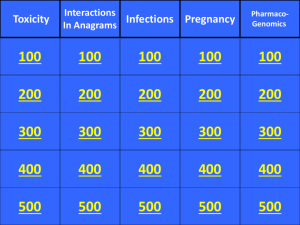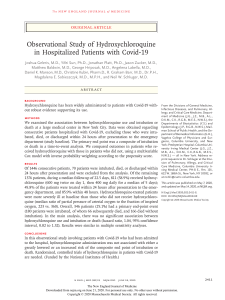Hydroxychloroquine for inflammatory arthritis Oxford and Berks Regional Rheumatology Guidelines
advertisement
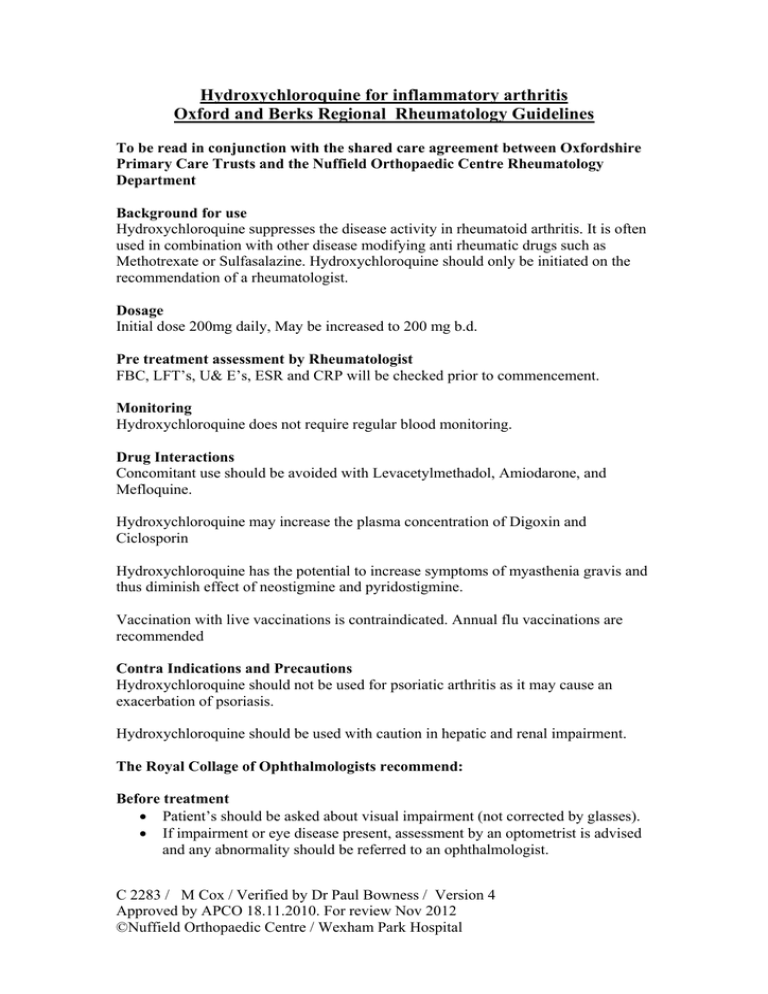
Hydroxychloroquine for inflammatory arthritis Oxford and Berks Regional Rheumatology Guidelines To be read in conjunction with the shared care agreement between Oxfordshire Primary Care Trusts and the Nuffield Orthopaedic Centre Rheumatology Department Background for use Hydroxychloroquine suppresses the disease activity in rheumatoid arthritis. It is often used in combination with other disease modifying anti rheumatic drugs such as Methotrexate or Sulfasalazine. Hydroxychloroquine should only be initiated on the recommendation of a rheumatologist. Dosage Initial dose 200mg daily, May be increased to 200 mg b.d. Pre treatment assessment by Rheumatologist FBC, LFT’s, U& E’s, ESR and CRP will be checked prior to commencement. Monitoring Hydroxychloroquine does not require regular blood monitoring. Drug Interactions Concomitant use should be avoided with Levacetylmethadol, Amiodarone, and Mefloquine. Hydroxychloroquine may increase the plasma concentration of Digoxin and Ciclosporin Hydroxychloroquine has the potential to increase symptoms of myasthenia gravis and thus diminish effect of neostigmine and pyridostigmine. Vaccination with live vaccinations is contraindicated. Annual flu vaccinations are recommended Contra Indications and Precautions Hydroxychloroquine should not be used for psoriatic arthritis as it may cause an exacerbation of psoriasis. Hydroxychloroquine should be used with caution in hepatic and renal impairment. The Royal Collage of Ophthalmologists recommend: Before treatment Patient’s should be asked about visual impairment (not corrected by glasses). If impairment or eye disease present, assessment by an optometrist is advised and any abnormality should be referred to an ophthalmologist. C 2283 / M Cox / Verified by Dr Paul Bowness / Version 4 Approved by APCO 18.11.2010. For review Nov 2012 ©Nuffield Orthopaedic Centre / Wexham Park Hospital Record near visual acuity of each eye with glasses where appropriate using a standard reading chart. Initiate hydroxychloroquine treatment if no abnormality detected (at a dose not exceeding 6.5mg/kg daily). During treatment Patients should be monitored yearly, enquiring about visual symptoms, rechecking acuity and assessing for blurred vision using the reading chart. Refer to an ophthalmologist if visual acuity changes or if vision is blurred and warn patient to stop treatment and seek advice from their rheumatologist. If treatment is required for more than 5 years, individual arrangements should be agreed with the local ophthalmologist. Side Effects and suggested action to be taken Please note that in addition to absolute values for haematological indices a rapid fall or consistent downward trend in any value should prompt caution and extra vigilance. Gastrointestinal disturbance Skin rashes Over dosage If severe, drug may have to be discontinued These are often photosensitive. Stop in all but the mildest of cases. Hydroxychloroquine is very toxic in over dosage. Immediate advice form the poisons centre is essential Contact Telephone Numbers Nuffield Orthopaedic Centre Rheumatology Registrar on Call Rheumatology Help line (Answer phone) Clinical Nurse Specialist in Rheumatology 01865 741155 Bleep Rheumatology registrar on call 01865 737656 01865 737657 C 2283 / M Cox / Verified by Dr Paul Bowness / Version 4 Approved by APCO 18.11.2010. For review Nov 2012 ©Nuffield Orthopaedic Centre / Wexham Park Hospital
